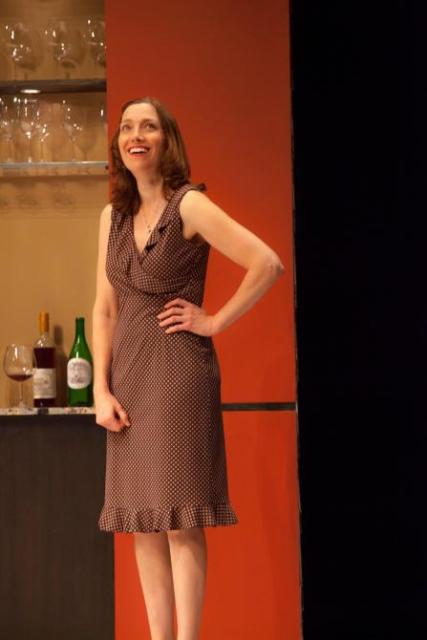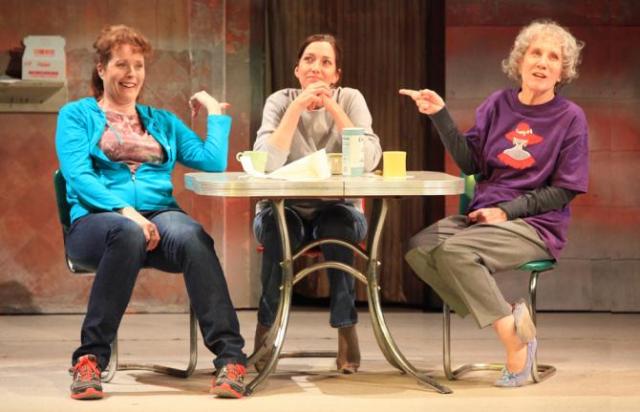

Exploring class and its effects on people’s opportunities and personas has been powerful in British drama, especially since playwright John Osborne looked back in anger. Good People brings the exploration, much subdued since Odets’s plays were popular, to contemporary America. Realistically serious yet not without humor, David Lindsay-Abaire questions whether chance and a person’s circumstances in life influence the direction it takes, as much as or more than character.
In her poor Boston neighborhood, hapless “Southie” Margie Walsh is typically fired from a last-ditch job that barely paid her rent and sitters for Joyce, her disabled, childish (unseen) adult daughter. Though Margie betrays racist attitudes and insists employers wanted to cut “seniority” wages, she must face her unreliability, especially tardiness.
Unlike fatherless Margie, her high school lover Mike worked hard and, helped by school, dad, and, later, father-in-law, has prospered as an M.D. fertility expert with beautiful wife, daughter, and home in high-class Chestnut Hill.
Margie’s best girlfriend Jean persuades her to go to him for a job. In their awkward meeting in Mike’s office, Margie accuses him of being “lace curtain” after he tries to substantiate his and all his family being “good people.” Maggie doesn’t get work but rather Mike’s hesitant invitation to a birthday party his wife’s giving him. When the party’s called off because Mike’s daughter gets sick, Margie pretends not to know. She shows up and is welcomed by Kate. But the evening holds a triangle of revelations (about Mike in a racist fight, Joyce’s parentage, Margie’s choices or lack of them, Kate’s priorities) leading to conflict and crisis. How will they be resolved, if they are, in the future?
In a play that continually darkens, humor is the author’s grace that saves it from being melodrama. He penetrates a gritty segment of society along with unveiling the factors that fail at cleaning it up. Unlike self-aggrandizing Mike, played as equally self-conscious by Tim Grimm, Margie never escapes her youthful mistakes.
Denise Cormier realizes Margie’s need for humor and quick insights. Yet she always looks and sometimes acts too young, making her comments on Kate’s youth confusing. Tyla Abercrumbie’s Kate is as outsized as the tray-full she serves of cheese in bulk.
If Anne-Marie Cusson’s brashness as Jean seems part of normal “Southie” behavior, it’s still distinctly used out of true friendship for Margie.
As landlady Dottie, Peggy Roeder delivers a funny, pessimistic commentary on everything she’s aware of and then some. Her friendship falters with the pace she’s paid for babysitting Joyce and Margie coming up with rent. Winning Jory Murphy, Margie’s former boss wrongly taken to be gay, helps with his limited resources, contrasting with “comfortable” Mike.
Bill Clarke’s scenery puts a cagey top over a bingo players’ table in a three-walled church basement and also curiously over a painted backdrop before a kitchen table in Margie’s apartment. Kate and Mike’s living room is a standard box with modern furniture, arty pieces on a back shelf, and a cove with bar supplies. It’s nice but hardly a Chestnut Hill masterpiece that should be devastating compared with Margie’s digs. Dane Laffrey’s costumes work, as do the other technical elements of the production. Director Greg Leaming understands the characters but would do well to have most shout less. He’s best getting them to express humor without betraying the play’s serious exploration.
